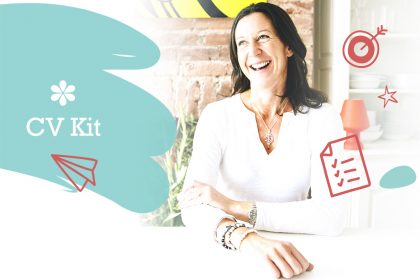What should you include in your CV?
Trying to write your CV but not sure what you need to put in it? Here’s a quick run down of what you need to include.
As a recruiter, you spend pretty much all your time reviewing CVs and searching for relevant CVs for positions you have available. And sometimes it can be hard to spot the best candidates based on their CVs.
I find it quite surprising how some people choose to write their CV, and what they decide to include. So I thought I’d share a post about what I think makes a CV stand out, to help you catch the attention of recruiters and employers.
So here’s a quick run down of what you need to include in your CV.
What personal information should you include in your CV?
This should be the first thing on your CV – under or near your name so it’s easy to find and the first thing the recruiter will see when opening your CV. Here’s what to add:
- Always ensure to add contact details (email and telephone). If you are in work and do not wish to be called, state this on your CV, ask to be emailed or at least just add your email.
- It is completely your choice if you include your address and date of birth, although it is not required.
- Social media – if you have LinkedIn, Twitter, GitHub etc, it may be worth adding the links to your profile.
What should your summary or profile say?
I’d recommend this should be at the top of your profile, and kept short and sweet. Include a quick description of how you would best describe yourself. (It’s always worth getting someone else to review this as they may be able to add something you haven’t come up with).
What should you add for your key skills or achievements?
When listing skills and achievements, it can come across very broad if you are a contractor. I’d suggest not doing this as you are hired to come in as a specialist within your area, and your employment history will be more than enough to know whether you’re right for the position.
If you feel this will help you can add in a few skills that you feel sum up your experience/background depending on which industry you work in, I would recommend putting this in bullet points so it’s easy to read and get an idea of your overall skillset.
How to write about your professional experience
This should be the main part of your CV, as ultimately this will be the reason why you’re hired or at least the majority of the reason. Here’s how to tackle it:
- Always add your company name but don’t go into detail about what they do, you can add a short sentence but the recruiter can easily find this information and it take up space on your CV where you could add something beneficial.
- Duration is key, always ensure you provide the dates of your employment history. Especially if you are in the contract market, it’s always good to see a candidate hold a reasonably long contract length and potentially repeat positions with previous clients.
- Another point to note, always start with your most recent position and work backwards.
- Keep the detail short and to the point, I’d suggest writing this in paragraph format with short, informative sentences. This will demonstrate you can communicate well, even on paper.
- Finally, make sure you add your job title and a decent length about what your responsibilities were rather than what the team or company achieved – it’s always interesting to see what YOU achieved personally.
How much of your previous employment history should you include?
If you’ve got a long employment history, it may be worth only focusing on your positions over the last 10 years and for any positions before this, add your previous employment which simply covers the company name, job title and duration.
Do you need to mention your education?
Your education usually comes after your previous employment. It’s a good idea to include any degrees, qualifications and certifications, skills, languages and technical skills.
Some general CV writing tips
If you wish to personalise your CV, feel free to do so but always ensure to keep it professional and always look at your CV from an employers’ perspective – what do you think your CV demonstrates? – If you were recruiting for the position, would you hire YOU based on your CV?
Finally, a summary of tips I think will help when you write your CV:
- As obvious as it sounds, but surprisingly some don’t do it – include contact details (email and telephone). There is nothing worse than finding a great CV for a position and there is no way of contacting the candidate.
- If you know someone in the same or a similar position as you, ask them to review your profile and provide feedback – a second opinion is always useful.
- If you want to include interests on your CV, don’t focus on this too much – whilst it’s good to add personality, keep it to a minimum.
- Be consistent – keep the text side reasonable and the font the same all throughout the CV.
- Save your CV as a Word or PDF document – this will always be compatible with the system the recruiter or client use.
- If you are applying for positions through job boards such as Jobserve, Jobsite, CWJobs and Monster, send your CV to the consultant who is listed on the advert. CVs aren’t always received if sent through the job boards.
Need help writing a CV you’re confident any recruiter will love? Find out how our CV and Cover Letter Kit will help.
Written by Sadiye Booker from A Career Focused Insight.
Photo by rawpixel










